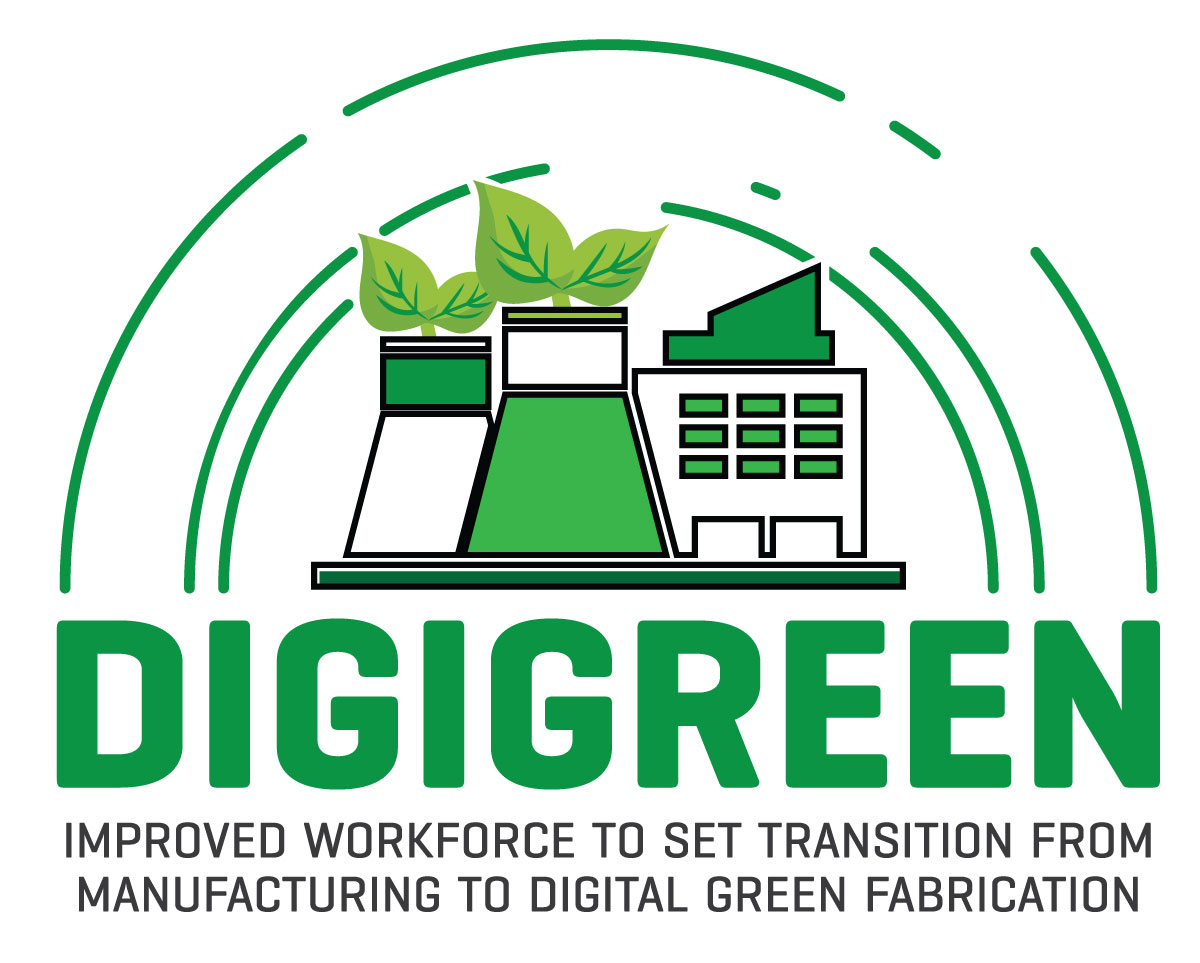
Project number: 2021-1-RO01-KA220-VET-000028028
Implementation period: 01.12.2022 – 30.11.2024
Assistance program: Erasmus+
Project description
The DIGIGREEN project is expected to significantly impact the local, national, and European levels, mainly because it will target a continuous need of both the manufacturing workforce and the European market for updated competencies regarding “new” and “advanced” processes.
The project aims to employ the best green practices while promoting this value in all training content. From no printing policies, efficient use of energetic resources and green traveling, all efforts will be made to create a minimal ecological footprint.
The project targets the long-term well-being of those directly impacted by the program and indirectly those targeted by their actions and in their social networks. Higher education professors trained in inclusive pedagogic methodologies will improve the learning experience of their students, export the inclusion practiced in higher education to the corporate world that will employ them and will hopefully influence their peers to attend the project or similar initiatives.
Indeed, access to manufacturing technology and management contents is critical to ensure that companies across Europe have the adequate tools to address and comply with the challenges they face, thus contributing to the European global strategy of having industry representing 20% of the EU GDP by 2020. The project gains even more relevance as it assures that skills development is done at the European level, with a transnational scope, and then transferred to the national level, through the creation of a European e-learning platform for microlearning and webinars, addressed to both white and blue manufacturing workers and covering technical and management contents with EVCET points allocated. It is worth noting that having identified the above-mentioned needs, it was decided to create a multinational e-learning platform that supports the development of content in 4 languages: English, Portuguese, Romanian, and Slovenian, so it can largely be used by different countries. The whole project’s outcomes are expected to allow achieving the European Union’s target of restoring the manufacturing industry and the Erasmus+ program objectives of promoting transparency, lifelong learning, the enhancement of digital integration in e-learning, and the open access to educational resources by sharing best practices.
Target group
- VET: Contributing to innovation in vocational education and training, Increasing the flexibility of opportunities in vocational education and training
- HORIZONTAL: Addressing digital transformation through the development of digital readiness, resilience, and capacity
Project results
- Setting strong support for the industrial sectors in the long process of transition from traditional manufacturing to digital and green manufacturing of their manufacturing systems
- Setting an innovative system of training, which is able to offer in the same time: digital literacy, competencies to switch to digital manufacturing, and competencies to switch to low carbon prints and eco-labeling manufacturing
- Setting a strong answer to the European effort in the development of digital education for the improvement of the actual learning conditions (need for short-term training sessions) through the promotion of the enhancement of digital integration in e-learning and the open access to educational resources by sharing best practices
- Design, elaborate, and implement a European virtual learning platform for the manufacturing sector addressed to “new” and “advanced” contents integrated into a greater variety of innovative learning practices; a strong teaching and learning digital tool in cooperation with newly designed methodologies to implement a mix of micro-courses and webinars way of learning
- Enable ICT to make VET more flexible in opportunities, and support a strategic use and access to educational resources at different levels, which means fostering new digital learning opportunities in an accessible, innovative, and flexible way – Improve the high level of digital and transversal skills development for teachers („white” trainees) and trainees, employed or not („blue” trainees) in a lifelong perspective
- Assures high transparency of competencies for the manufacturing sector, by describing learning outcomes for each microlearning and webinars activity
- Involves different stakeholders in the creation and delivery of learning practices, making e-learning more responsive to new challenges in the sector;
- Reinforces the partner’s technical and cooperative capacity to deliver online training modules and to work in a transnational team, thus by sharing best practices
Partners
University of Craiova, Craiova, Romania
European Federation For Welding Joining And Cutting, Bruxelles, Belgium
Universidade de Lisboa,Lisboa, Portugal
Univerza V Ljubljani,Ljubljana, Slovenia
Asociata De Sudura din Romania, Timisoara, Romania
Danmar Computers SP Zoo,Rzeszów, Poland

